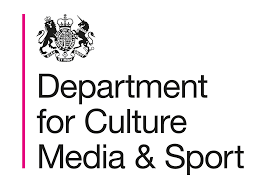PRESS RELEASE : Action taken to help promote no and low-alcohol drinks [September 2023]
The press release issued by the Department of Health and Social Care on 28 September 2023.
More people could be encouraged to purchase alcohol-free drinks under government proposals to make alternatives to alcoholic drinks more widely available.
- Government consults on encouraging more people to choose no and low-alcohol drinks to help those looking to live healthier lives while supporting businesses
- Drinks containing 0.5% alcohol by volume (ABV) could be labelled alcohol free, in line with countries like the USA, New Zealand, Germany and Australia
- Potential changes will make no and low-alcohol drinks more popular and easier to buy, helping shift the market to healthier alternatives
More people could be encouraged to purchase alcohol-free drinks in pubs, restaurants, shops and venues under government proposals to make alternatives to alcoholic drinks more popular and widely available.
The public consultation launched today (28 September 2023) will seek views on whether to raise the threshold for describing a drink as ‘alcohol free’ to 0.5% alcohol by volume (ABV). This is in line with other countries around the world including the USA, Denmark, Germany, Australia, Sweden, Portugal and Belgium. The threshold in the UK is currently 0.05%.
A higher threshold could see more no and low-alcohol products on the market – increasing availability in retail and hospitality and expanding product ranges, giving consumers more options. This could encourage thousands more people to choose an alcohol-free or low-alcohol drink to make healthier choices, moderate alcohol intake and normalise alternatives to alcohol.
The potential changes could drive the productivity of businesses, help remove red tape and allow them to more easily manufacture these drinks to benefit from the multi-billion-pound alcohol-free drinks market.
Public Health Minister Neil O’Brien said:
No and low-alcohol drinks are getting more and more popular, and we are looking to further support their growth. Many other countries around the world already allow more freedom over this. Liberalising labelling guidelines could also help people make more informed choices about the drinks they buy.
We want to encourage the growth of no and low alcohol alternatives for those looking to moderate their alcohol intake.
The government is clear these products should not be marketed to children or consumed by them. Through the consultation, the government is seeking views on measures it can take with industry to prevent children and young people from accessing and consuming these products, including potential age restriction warnings on products.
Views are also being sought on whether to update labelling guidelines, so that manufacturers display the alcohol percentage on any no or low alcohol product clearly on the bottle.
‘Low alcohol’ refers to any product 1.2% ABV or below. Currently, alcohol-free is 0.05% ABV but the government is seeking views on whether to raise this to 0.5% ABV.
Marcos Salazar, CEO of the Adult Non-Alcoholic Beverage Association, said:
As the no and low alcohol category continues to grow and provide greater choice for consumers looking to reduce their alcohol consumption, it is essential that there is consistency between the UK, European and other international markets in terms of labelling.
The Adult Non-Alcoholic Beverage Association (ANBA) welcomes the Department of Health and Social Care’s decision to launch this consultation today, and will continue to work closely with the government to help support its aims of increasing the availability of alcohol-free products for consumers.
Matt Lambert, CEO of The Portman Group, said:
We welcome the new consultation, which we hope will help result in greater clarity on labels and encourage further uptake of low and no alcohol alternatives.
Our annual polling repeatedly shows that these products are already helping UK consumers moderate their drinking and avoid harms such as drink driving. It is also an important opportunity to highlight the continued commitment of producers to market and sell these products responsibly to adult consumers.
Emma McClarkin OBE, CEO of the British Beer and Pub Association, said:
The BBPA has been calling on government to review low alcohol descriptors for many years. We welcome proposals to align low alcohol descriptors with those of nearly all other global markets. This will create a fairer trading environment for British brewers and pub operators, stimulate innovation and growth in the low and no alcohol category, and provide much needed clarity for British consumers. Labelling of low-alcohol drinks must be relevant and clear, and not risk confusing consumers.
British brewers are leading the charge in the development of low and no alcohol beer, with over 85% of pubs already offering at least one alcohol-free beer. I am proud to have been able to take this even further by working with our members and government on a series of voluntary commitments that I hope will drive even greater awareness of the category and promote availability of low and no alcohol options in pubs across the UK, cementing their vital role in supporting the health and wellbeing of the communities they serve.
A fifth of adults in England currently drink above the low-risk guidelines of 14 units per week – significantly increasing their risk of ill-health, poorer quality of life and even premature death. Views are being sought on how to support those looking to moderate their alcohol consumption and provide them with greater choice when looking for alternatives to alcohol.
The multi-billion-pound alcohol-free drinks market has increased rapidly in recent years, predominantly driven by alcohol-free beer, which has been described as one of the fastest-growing drinks trends in the UK.
Minister for Regulatory Reform, the Earl of Minto, said:
We want the public to know exactly what they are drinking which is why the potential changes are so important. This consultation will help bring about smarter regulations to ensure that businesses aren’t over-burdened, allowing firms to focus on growth and innovation.
Today’s consultation forms part of the government’s wider plans to introduce smarter regulation to grow the economy.
Smarter regulation is about improving regulation and guidance for businesses across the board, ensuring it is as clear, proportionate and does not unnecessarily impose burdens on businesses which restrict innovation and growth. The government will be considering the impacts on businesses of any potential changes to guidance alongside our primary aim of delivering improvements to public health.
This supports a strong programme of work under way to reduce alcohol-related health harms and their impact on life chances.
As part of the NHS Long Term Plan, the government has invested £27 million to establish specialist alcohol care teams in the 25% of hospitals with the highest rates of alcohol-related mortality and deprivation. This is estimated to prevent 50,000 admissions over 5 years and will reduce demand on the NHS.
The government also published a 10-year strategy for tackling drug and alcohol-related harms in 2021, backed by £532 million of new funding over 3 years (to 2024 to 2025) to rebuild drug and alcohol misuse treatment and recovery services in England, as well as increase the availability of inpatient detoxification beds.



